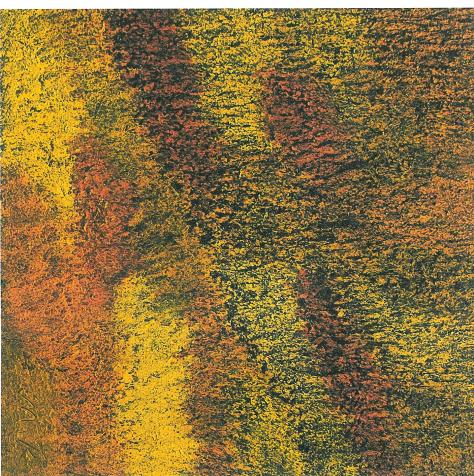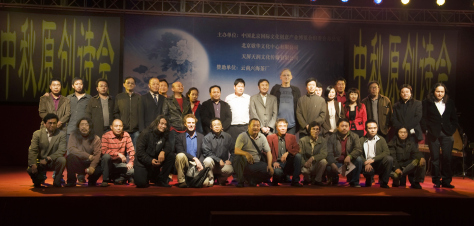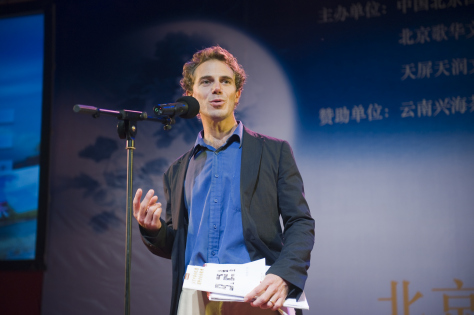The reporting on the Liu Xiaobo story has seemed to me a strange rehash of old issues. This is certainly true of authors in Western media, who are either ignorant or just dismissive of all that’s taken place in China in terms of liberalization (for lack of a better word) in the past 10 years or so. It is equally true of China’s inclination to lock down internet and other more literal traffic, a response we might call “old school” in the worst sense of the word.
A nice, concise counterpoint is provided by Jeff Wasserstrom as follows:
Source: Yale Global Online (10/13/10):
http://yaleglobal.yale.edu/content/china-sees-globalizations-downside-part-i
i
Once a Winner, China Sees Globalization¹s Downside Part II
China¹s attempt at gaining soft power is tripped up by clash over human
rights
By Jeffrey Wasserstrom
IRVINE: Since the late 1980s, China¹s leaders have embraced
globalization in a bid to remake the nation, and it has recently sought
to leverage its growing economic power in a grand re-branding exercise.
China, the exercise tried to show, was no longer Mao¹s backward
revolutionary country, but a modern superpower. Unfortunately for China,
the same interconnected world that enabled its economic surge has
sometimes stymied the nation¹s public relations efforts.
The re-branding drive has overlapping, but somewhat different domestic
and international ambitions. President Hu Jintao and his comrades strive
to convince China¹s citizens that they can simultaneously raise living
standards, maintain stability and garner international respect. The
emphasis abroad, meanwhile, has been on convincing residents of foreign
countries, including people of Chinese ancestry, that the People¹s
Republic of China 2.0, though still run by a Communist Party, has been
utterly transformed.
The biggest successes of this re-branding drive have depended on
Beijing¹s ability to ride the tide and take advantage of distinctively
global aspects of the current era. Without far-flung supply chains and
fast-flowing foreign investment including that of ethnic Chinese in
Taiwan and other locales China could not have surged past Japan to
become the world¹s second largest economy. And without satellite
television and the internet, the visually stunning opening ceremony of
the Beijing Olympic Games and strong showing by Chinese athletes could
not have had the dramatic impact they did in 2008, helping dispel at
last the lingering visions of China as a technologically backward ³sick
man² of Asia.
China¹s re-branding drive has depended on Beijing¹s ability to take
advantage of distinctively global aspects of the current era.
Yet when this re-branding drive stumbles, as it has periodically in the
two years since the Olympics, this too is often due to the special
nature of the current period of globalization.
The Nobel Peace Prize going to prisoner-of-conscience Liu Xiaobo,
someone Beijing lobbied hard to keep from receiving the award, is the
latest example of how difficult the Communist Party finds it in these
robust global times to call the shots with international bodies. Before
Liu got his prize, the 2000 Nobel for literature went to the Paris-based
author and critic of the government, Gao Xingjian. This carried a
special sting due to what Julia Lovell, author of a book about Gao¹s
win, calls ³China¹s Nobel Complex.² China¹s leaders have argued for
decades that the PRC has become the kind of country that should be
producing Nobel winners in many fields. They see it as cruelly ironic
that, while some Chinese are indeed becoming Nobel laureates, they are
honored not for breakthroughs in areas such as economics or medicine,
but for writings that Beijing insists are vile, the creations of
miscreants or criminals who the West wrongly lauds as heroes.
Back to the 2008 Olympics and its symbolism, all did not run smoothly,
of course, from the Chinese government¹s point of view. There were rough
spots in even this most successful to date of all Chinese ³soft power²
spectacles. For example, the torch relay, the longest and most elaborate
in Olympic history, was supposed to be a grand symbol of China¹s
reengagement with every part of the world.
In the end, though, only some stops outside of China went as planned.
Protesters angered by Beijing¹s policies toward Tibet and other issues
held demonstrations, some rowdy, to mark the torch¹s arrival in cities
such as Paris.
On the whole, though, domestic and foreign media reports tended to line
up fairly neatly once the Games began. The main storyline was that, by
successfully mounting such a grand show, China demonstrated how
dramatically it had changed and that it was again a central player in
world affairs.
Such a message was supposed to be carried forward by two subsequent
events dubbed ³Olympics² of a sort: the prestigious 2009 Frankfurt Book
Fair, called an ³Olympics for Literature² by Chinese media, and the 2010
Shanghai World Expo, often referred to in China as an ³Economic
Olympics² or ³Olympics of Technology.²
If all had gone according to plan, the Frankfurt fair would have
generated domestic and international headlines trumpeting the growing
profile of Chinese literature and increased respect for China¹s cultural
traditions.
Things began to go wrong for China a month or so before its October
opening, when a seminar linked to the event was scheduled to take place
including writers who have drawn Beijing¹s ire. Poet and
dissident-in-exile Bei Ling was among those invited to take part, and so
was Dai Qing, the China-based environmental activist whose writings are
banned from publication in the PRC. Beijing expressed displeasure at
this lineup and called on German organizers of the session to pull
invitations to the writers the government found objectionable. At first,
fair representatives did an about-face and sought to placate the Chinese
government by revoking the invitations, but in the end, the authors came
and spoke.
The result was a public-relations disaster, as the big story of the fair
became Beijing¹s ham-handed efforts to limit freedom of speech in an
international venue and bully Germany undermining in basic ways
visions of the PRC 2.0 as a country that has become much less
ideologically rigid and a more congenial participant in global affairs
than was Mao¹s China.
Flash forward one year, and we see a parallel situation but with a
higher profile in the international news. From Beijing¹s point of view,
October 2010 was supposed to be a month when the news coverage of the
PRC dealt with upbeat topics such as China closing in on claiming record
visitors for a World¹s Fair a record that currently stands at 64 million
and is held by regional rival Japan for the Osaka 1970 Expo. Readers can
find those stories about the Shanghai Expo, of course, but almost
exclusively in the Chinese press. The biggest story internationally is
Liu winning the Nobel Peace Prize, despite or perhaps partially because
of Beijing pressuring the Norwegian committee in charge of the award to
give it to someone anyone else.
Beijing has claimed in venues such as the Global Times, an English
language paper linked to the Communist Party that Liu¹s win reflects
anti-PRC ³prejudice² and ³extraordinary terror of China¹s rise and the
Chinese model² in the West. However well or badly this rhetoric plays to
domestic audiences, to most foreigners it comes across as strident and
paranoid and does nothing to help brand China as a modern country.
The road from the Opening Ceremonies of August 8, 2008, to this year¹s
Nobel Peace Prize award has not been smooth for Beijing¹s re-branding
drive. One common thread in the story of this campaign, though, is that
both high points and low points involve global events and new technologies.
After all, Liu is in prison not for a paper petition he helped draft and
for which he collected signatures from people wielding pens. Rather he
was given an 11 year sentence on charges of ³subversion² for his role in
Charter 08, a bold call for expanded civil liberties intended from the
start to be distributed online, via the internet, a new media technology
that censors in Beijing work overtime to control, especially at time
likes this. Not long ago the same medium was dubbed ³God¹s gift to
China² by an activist and writer once less known but now world famous
Liu Xiaobo.
Jeffrey Wasserstrom is a professor of history and department chair at
University of California Irvine and the author, most recently, of ³China
in the 21st Century: What Everyone Needs to Know,² published this year
by Oxford University Press.
Rights:Copyright © 2010 Yale Center for the Study of Globalization





















